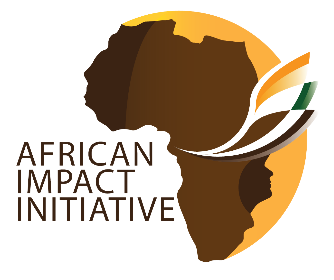theme: HUMAN CAPITAL FLIGHT AND BRAIN DRAIN
It is commonly acknowledged that the rise in the number of migrants from Africa to regions across the globe contributes to the loss of skilled workers and tax revenues in Africa. Further, international African immigrants are less likely to leave their destination country for their origin country. Key questions AIC 2018 will address are: what is the nature and extent of capital flight and brain drain in African countries? What incentive structures are in place to encourage capital flight and brain drain reversal? What do the numbers say about intra-regional migration compared to extra-regional migration in Africa? Does forced displacement contribute to capital flight and brain drain in African? Is migration harmful to origin countries? This year, the African Impact Conference will take a three-tiered approach to critically engage students and stakeholders in discussions designed to explore the theme.
This conference will explore the issue through the following subtopics:
Willful Migration: Human Capital Flight and Brain Drain in Africa
Shortage in financing, among others, has been documented to be the main direct cause of poverty in Africa. From 1970–2010, thirty-three Sub-Saharan African countries lost about 814 billion US Dollars to capital flight (Boyce and Ndikumana, 2012). This amount surpasses official development assistance (659 billion US Dollars) and foreign direct investment (306 billion US Dollars) by the same countries during the same period. Several explanations for human capital flight and brain drain exist, including economic instability, political instability, and poor social infrastructure, financial development, among others. In this section, the selected plenary speaker will characterize the issue and its determinants.
Inter-Africa Migration and Forced Displacement
Contrary to common belief, the majority of Africans do not leave the continent -- they move to neighbouring countries. In 2018, about 41.5 million international migrants moved from, to, or within Africa, and 17 million were resident outside of the continent. According to the United Nations High Commissioner for Refugees (UNHCR) annual Global Trends Report, about 1 person was displaced every two seconds in 2017, with developing countries most affected. Further, Africa hosts more refugees than any other continent in the world. In this session, the plenary speaker will decipher the issue by addressing common misconceptions about migration and displacement in global Africa. Key questions: to what extent is forced displacement harmful to Africa, in terms of lost aspirations, skills, values and what they can offer in terms of human capital for their country of origin?
Making a Foreign Country Your Home: Education, Work, and Opportunities (or Working-Class in a Foreign Land: Finding Success in a Cross-Current between Cultures)
Whether directly or indirectly, African immigrants or refugees residing in Canada arguably contribute to human capital flight and brian. So, now that you are here, what next? In this session, speakers and students alike will be challenged to ask questions about their migration story, with an aim to to uncover the socio-demographic characteristics of African immigrants or African people seeking refuge in Canada. From those who studied/acquired work in Canada and returned home to contribute, or those who studied in Africa and travelled abroad to continue their education/acquire work, to African-Canadian newcomers without any prior work/educational experience before immigrating to Canada and second-generation students born in Canada. In this session, the following key questions will be addressed: Is there hope for second-generation immigrants (and beyond) seeking employment or settlement opportunities in their country of origin? How should we respond to losses associated with the capital flight and brain drain in our unjust world?


